In a recent letter to the Chicago Sun-Times, several Illinois Latino legislators claimed that an independent redistricting commission to produce political maps would somehow harm and silence Latino voters and other people of color, that politicians producing maps in private was preferred, and that independent commissioners would be well-connected and wealthy.
Nothing could be further from the truth.
It should be noted that CHANGE Illinois met with each of the 13 Latino lawmakers who signed the letter to listen to and address their concerns. We also, repeatedly, asked to meet with the the Legislature’s Latino caucus to engage in a discussion about improving redistricting, but were rebuffed. That’s ironic given that these very same elected officials say they worry an independent process would somehow silence Latino voices.
We remained hopeful that some Latino lawmakers would support independent mapping because several signers of their letter previously sponsored fair mapping efforts or had publicly supported independent redistricting in their candidate questionnaires.
To suggest having politicians draw maps privately will better protect Latinos and other communities of color defies evidence elsewhere.
The Fair Maps Amendment that our statewide coalition, CHANGE Illinois, advocated for was developed after engaging with more than 30 diverse groups from across the state, including several with a Latino community focus. The amendment requires that commissioners conduct their work in public, hold 30 hearings around the state, and respond to input from residents before approving maps.
The 2020 amendment included some of the strongest protections for communities of color in the nation. It mandated upholding both the federal and Illinois Voting Rights acts. It ended prison gerrymandering by counting people who are incarcerated at their home addresses. It required that the commission must reflect the ethnic, gender, and racial demographics of the state. Public employees who report directly to an elected or appointed official could not serve on the commission.
These protections were put in place to ensure that communities of color and all Illinoisans would be fairly and equitably represented.
Our proposed independent redistricting commission was modeled after California’s. Eleven of the 14 commissioners who drew maps in California after the 2010 census were people of color (four were Asian-Americans, three were Latinx, two were African American, one was a Pacific Islander and one was Native American). This occurred even though California lacks the diversity protections embodied in our Fair Maps Amendment. California’s commission included: a veteran, a lawyer for the Mexican American Legal Defense and Educational Fund, a second-generation Asian-American, nonprofit professionals and urban planners — all people from varying backgrounds who are not “wealthy and well-connected,” as the Latino lawmakers’ letter suggests would happen.
Most significantly, the maps produced by California’s independent commissioners resulted in the election of nine more people of color than had occurred when politicians drew maps.
And now, because the opportunity to allow votes on the Fair Maps Amendment has passed, Illinoisans won’t be able to vote on whether they would prefer an independent redistricting commission to draw maps, a process that would have removed politics and politicians from the process.
So, what now? Well, we wait to see how the U.S. Census enumeration will delay the redistricting process. If Census data is delayed, a clause in the state’s constitution could kick in that could result in a random selection which would give Democrats and Republicans a 50-50 shot at controlling political map drawing.
That process surely will drown out many Illinoisans’ voices.
Our statewide coalition will continue to do all that we can to push for an equitable and transparent process for drawing maps through legislative efforts. And we hope all of our Latino lawmakers will understand that sunshine and open engagement in a mapping process is far superior for people of color and for all Illinoisans than politicians drawing lines behind closed doors.
This column was co-authored by our former Advocacy Director Liliana Scales and our Board of Director’s Co-Chair Deborah Harrington. It was originally published by the Chicago Sun-Times.
